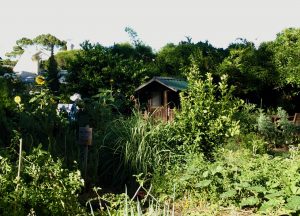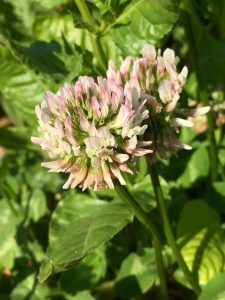A gardener’s guide to self-care
Tending a garden can teach us so much about self-care.
As an amateur gardener, autumn and spring are my favourite seasons. In Sydney’s climate, my veggies thrive best when the days are bright but bite has gone out of the sun.
My first forays in the garden were very much about sticking something in the ground and hoping it grew. This hit-or-miss approach yielded some spectacular results, and expensive failures.
It was a lot like my initial tentative steps towards living a healthier life; putting my back out in a yoga class, replacing meat with lashings of cheese and all sorts of odd self-prescribed tweaks that didn’t hit the mark.
A garden is an apt metaphor for the body. Both have unique ecosystems that require specific conditions to flourish. Both require sunlight, water and nutrients. Both need some regular attention to thrive.
Tending a garden is like caring for your body
In autumn and spring, I prepare the earth before planting. This begins with building up the soil, digging in some compost and weeding out the interlopers that compete for nutrients. As it’s such a small plot, sometimes the garden needs a rest – to lie fallow for a while.
Just like the soil, our bodies contain a rich microbiome of beneficial and potentially harmful bacteria, and other life forms. When this gets out of balance, we can’t thrive. Science has backed up the long-held naturopathic belief that our gut health impacts our emotions, mental clarity and our body as a whole.
Sometimes things go wrong. Like when the infestation of grub worms literally cut down my once thriving rhubarb at the roots or fruit fly blighted a bumper crop of tomatoes.
Even with a very small plot, it can feel overwhelming to remedy just one of these issues. I’ve got to admit, the first appearance of grub worms made me want to give up on gardening entirely. Growing vegetables can be hard work, make your body ache from toil and an expensive folly at times. But when you get it right and the weather is benign, eating freshly picked produce makes my heart and body sing.
When something goes wrong with our health, it’s not unusual to want to ignore it. “If I don’t think about it, it’ll go away”, right? Unfortunately, unhealthy soil will never grow nourishing food. Usually the longer you leave an imbalance in your body, the worse it will get.
Even the best gardener will have crop failures. Infestations are like a random flu or stomach bug that slays us down despite building a robust body.
Weed, seed, feed
The job of a naturopath is very similar to a gardener. We need to identify the problem and remedy it (weed), correct the underlying imbalances (feed) and plant the seeds of a healthier lifestyle.
During times when we’re busy, stressed and doing things that make our body scream in discomfort, it’s like a bunch of weeds sucking the goodness from the soil. It’s harder for our body to find the nutrients it needs to repair and grow if these outside influences are using up the goodies.
Just as it’s unrealistic to harvest endless seasons of vegetables from a small patch of dirt without regularly feeding and watering, so too is the belief that the body doesn’t need extra care and attention after periods of stress or neglect.
Seasonal maintenance
At the beginning of each season, take a few minutes to ask yourself these questions:
- In the last few months has there been excessive physical or emotional stress, such as deadlines, stresses, illness, injuries, too much alcohol or partying, lack of sleep, no downtime, too many skipped or inadequate meals?
- Do I have any nagging pain, upset gut, depression, anxiety or something doesn’t feel right?
If you’re out of sorts and know the cause and how to remedy it, do so. When you’re not sure of the cause or healthiest way to restore your wellbeing, see your GP and/or consult an experienced naturopath.
Simple tips to weed, seed and feed our body
If you’re feeling overwhelmed, just start with one of these suggestions:
- Try the forty food challenge to diversify your diet and help restore your microbiome.
- Add some sauerkraut or kimchi in your diet, as a source of pre and pro biotics.
- Understand how stress impacts your body and the symptoms you experience at these times.
- Find healthy ways to relax, without technology.
- Walk every day for at least 40 minutes.
- Eat three balanced meals a day and try to drink around 2 litres of water.
- Cease (or get help in stopping) the habits that drain you.









